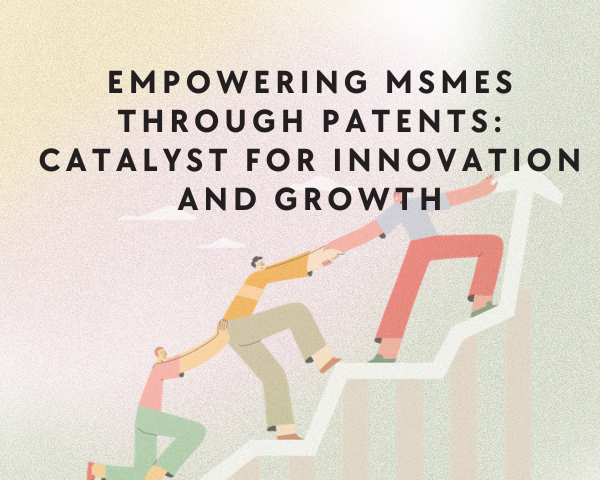A patent grants its owner exclusive right granted for his invention, i.e., an exclusive right to a product or a process that generally provides a new way of doing something, or sheds light on a novel technical solution to a problem. In order to obtain a patent the technical information about the invention must be disclosed to the public in the patent application.
On obtaining the Patent, the patent owner holds the power to give permission or license to other parties to use the invention on mutually agreed terms. The patent owner also has the option of selling the right to the invention. However, once the patent expires, the protection ends, and an invention enters the public domain; that is, anyone can commercially exploit the invention without infringing the patent.
As a patent owner, one has the right to decide over who may or may not use the patented invention during the patent period, i.e., the invention cannot be commercially made, used, distributed, imported, or sold by others without the consent of the patent owner.
Why are patents useful?
The patenting of inventions is an important part of the innovative sector. This is by the provision of incentive, protection, and recognition for novel ideas and inventions. And hand in hand with this, it facilitates the mutually beneficial spread of new knowledge and accelerates innovation activities with the obligatory publication of patents and patent applications.
This disclosure of technical knowledge to the public along with the exclusivity of rights to the patentee provides incentives to competitors to invent around the invention which furthers the quality of life.
Why should I consider patenting my inventions?
Exclusive rights: Patents provide for an exclusive right to prevent or stop other markets players from commercially exploiting an invention for the patent period, i.e., 20 years from the date of filing of the patent application.
Return on investments: Patents require considerable monetary investment as well as time. With the exclusive patent rights, the patentee may establish himself in the market as well as obtains higher returns on investments.
Opportunity to license or sell the invention: On obtaining a patent grant, the patentee can choose to sell or license the commercialization of the patented invention to another enterprise, which could then become an income source.
Increase in negotiating power: Patents may prove to be of considerable interest to the enterprise with which you are negotiating, and you could enter into a cross-licensing arrangement where your enterprise and the other agree to license respective patents to each other.
Positive image for your enterprise: Business partners, investors, and shareholders may perceive patent portfolios as a demonstration of the high level of expertise, specialization, and technological capacity within your company. This may prove useful for raising your company’s market value.
What happens if I don’t patent my inventions?
An invention’s value depends on its utility, and a systematic integration into a business plan. Monetization of the invention makes it worth a particular amount, which, without adequate protection, makes it vulnerable to commercial use by an external entity. A patent on your invention can be used to prevent that from happening.
Competitors may take an advantage of your invention: Without patent protection, a rival company may imitate the technology of your innovation and sell it in the market at a lower price. Big enterprises possess the advantage of the latest manufacturing equipment which can be used to create scale economies and sell the product at low prices, and consequently curb your market share. Even small competing enterprises can produce the same product and often sell it at a lower price as they do not have to factor in the research and development costs incurred by your company.
Zero possibility of licensing or selling technology: Patenting provides the official ownership of your innovation. This ownership allows charging a license fee to someone who intends to use your technology. Without a Patent, licensing, selling and transfer will be severely hindered and eliminate the possibility of monetizing your invention.
Risk of infringement: Choosing to not patent your invention may lead to a risk of someone else patenting your invention. In most countries, the first person or enterprise to apply for a patent for an invention will have the right to the patent. Thus if you do not patent your inventions, another person who may have developed the same or an equivalent invention may do so and could legitimately exclude your enterprise from the market, limit your activities to the continuation of prior use[1], or ask your company to pay a licensing fee for using the invention.
It is, therefore, crucial that you consider patenting your inventions if you plan to commercialize them. For more information on patent process, please contact us.
[1]This ensures that no one is able to patent your invention. Here, instead of filing a patent application, you may disclose the invention to the public so that it becomes prior art for any patent application that will be filed after your publication, thereby placing it in the public domain. Because of the existence of such prior art, later filed patent applications containing the same or similar invention will be refused by a patent office on the grounds of the lack of novelty or inventive step.




